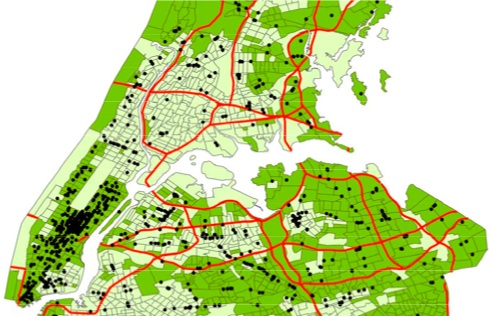Santander Bank has faced a number of issues in recent years, from an investigation into its auto loan business to receiving a $10 million fine over alleged illegal overdraft practices. More recently, the company received a failing grade from regulators when it came to its community lending business, prompting lawmakers to condemn the bank’s alleged discrimination and urge federal banking regulators to review the financial institution’s practices. [More]
community reinvestment act

Lawmakers Urge In-Depth Review Of Santander Bank’s Practices After Discrimination Allegations

Wells Fargo Called Out For Continuing To Offer Payday Loans
The Community Reinvestment Act of 1977 requires that FDIC-insured banks be examined and rated on whether or not they are meeting the banking needs in each of the communities in which they are chartered. But a pair of advocacy groups claim Wells Fargo deserves a lowered CRA rating because of loans that smell a lot like payday loans. [More]

Banks Shutting Down Branches In Poorer Hoods While Opening In Richer
The New York Times combed through the data and found that when the banks close branches, they’re doing it in poorer neighborhoods. And when they open a new branch, it’s more likely to be in a well-off area. While that makes business sense, it could violate the spirit of the Community Reinvestment Act which was passed to curb “redlining,” where lower-income neighborhoods are discriminated against by the financial services industry. [More]

Banks Target The Wealthy To The Detriment Of Minorities And The Poor
According to a report by the National Community Reinvestment Coalition (NCRC,) banks are predominantly concentrated in wealthy neighborhoods, leaving poor and minority communities without access to basic financial tools such as checking and savings accounts. The NCRC compared bank locations to minority and income data provided by the census. The findings suggest that banks are redlining with devastating consequences.
This report shows in 24 out of 25 MSAs [Metropolitan Statistical Areas], urban areas that have dense populations have fewer bank branches — therefore fewer mainstream banking opportunities — than the less populated suburbs. Without the ability to build relationships with the regulated banking community, working class and minority neighborhoods are more likely to use “fringe” services, such as payday lenders and pawnshops, for small loans. They are also more likely to have their home loans originated with mortgage brokers and subprime lenders, which often led to foreclosures and unmanageable monthly payments.
Houston, Philadelphia, and Los Angeles showed the greatest disparities, compared to the relatively equitable distribution of banks in San Francisco, Seattle, and Boston.

